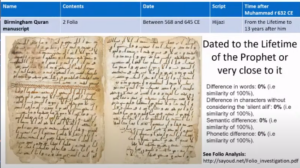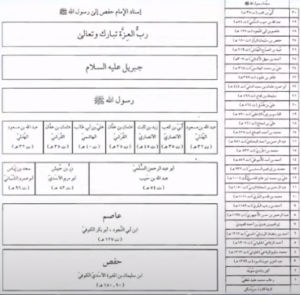In a world where the tides of change sweep away even the most ancient of traditions, the Quran stands as immutable testament from God.
Unchanged for 14 centuries
Quran has been unchanged since it came – more than 14 centuries have passed, kings, dynasties and civilizations have gone through, yet we can still trace Quran to the earliest of time. This preservation serves as a testament to the divine origin of the Quran.
Literal word of God
The Quran is not just a book; it is the literal word of Allah revealed to the Prophet Muhammad (peace be upon him) over 1,400 years ago.
Oral as well as written tradition continues
At the heart of Islam’s claim to the preservation of the Quran lies an extraordinary oral and written tradition that has been meticulously passed down through generations.
Reviewed by the prophet
From the moment the revelations were received by the Prophet Muhammad (pbuh), they were committed to memory by his companions and meticulously transcribed onto various materials.
Even the way Quran is read is preserved
During the time of the Prophet (pbuh), the Quran was primarily preserved orally, with many companions memorizing its verses under his guidance. This oral tradition, known as “Tajweed,” ensured the accurate recitation and transmission of the Quran’s message.
Moreover, the Prophet Muhammad (pbuh) himself would regularly review the Quran with the angel Gabriel during the month of Ramadan, further cementing its accuracy and authenticity.
However, it was not just through oral means that the Quran was preserved. The Prophet Muhammad (pbuh) also instructed his companions to transcribe the revelations onto various materials, including parchment, bone, and leather.
Written and carbon dated records
These written copies served as a secondary means of preservation, providing additional layers of security against any potential discrepancies or alterations (Figure 1).

Figure 1. Qur’an manuscript preserved in Birmingham.
Single source for all Written copies of Quran
Following the death of the Prophet Muhammad (pbuh), the task of preserving the Quran fell to his companions, who rose to the occasion with unwavering devotion. Under the leadership of the first Caliph, Abu Bakr, a committee was formed to compile the scattered revelations into a single, unified manuscript. This compilation, known as the “Mushaf,” served as the foundation for all subsequent copies of the Quran.
Chain of Narration
The preservation of the Quran continued to evolve over the centuries, with Muslim scholars developing rigorous methods of textual authentication and verification. One such method is the concept of “Mutawatir” narration, which refers to a report that has been transmitted by so many reliable narrators, at every level of transmission, and from different places that it is impossible that there is a mistake. This principle ensures that the transmission of the Quranic text is robust and free from error. An example is shown in Figure 2.

Figure 2. An example of chain of narration of Qur’an to date.
Through meticulous scrutiny of chains of transmission (Isnad) and the content of narrations (Matn), scholars have ensured the preservation of not only the words but also the meanings of the Quran.
Moreover, advancements in technology have further bolstered efforts to preserve and disseminate the Quran. Digital repositories and online platforms now provide access to Quran, ensuring that its message reaches every corner of the globe.
The preservation of the Quran is not merely a historical curiosity; it is a living testament to the divine guidance provided by Allah.
In Qur’an, Allah (swt) said:
Verily, We Ourselves have sent down this Exhortation, and most surely We will be its Guardian, (Al-Hijr, 15:10).
SUBSCRIBE NOW
Subscribe to our newsletter to get our newest articles instantly!
